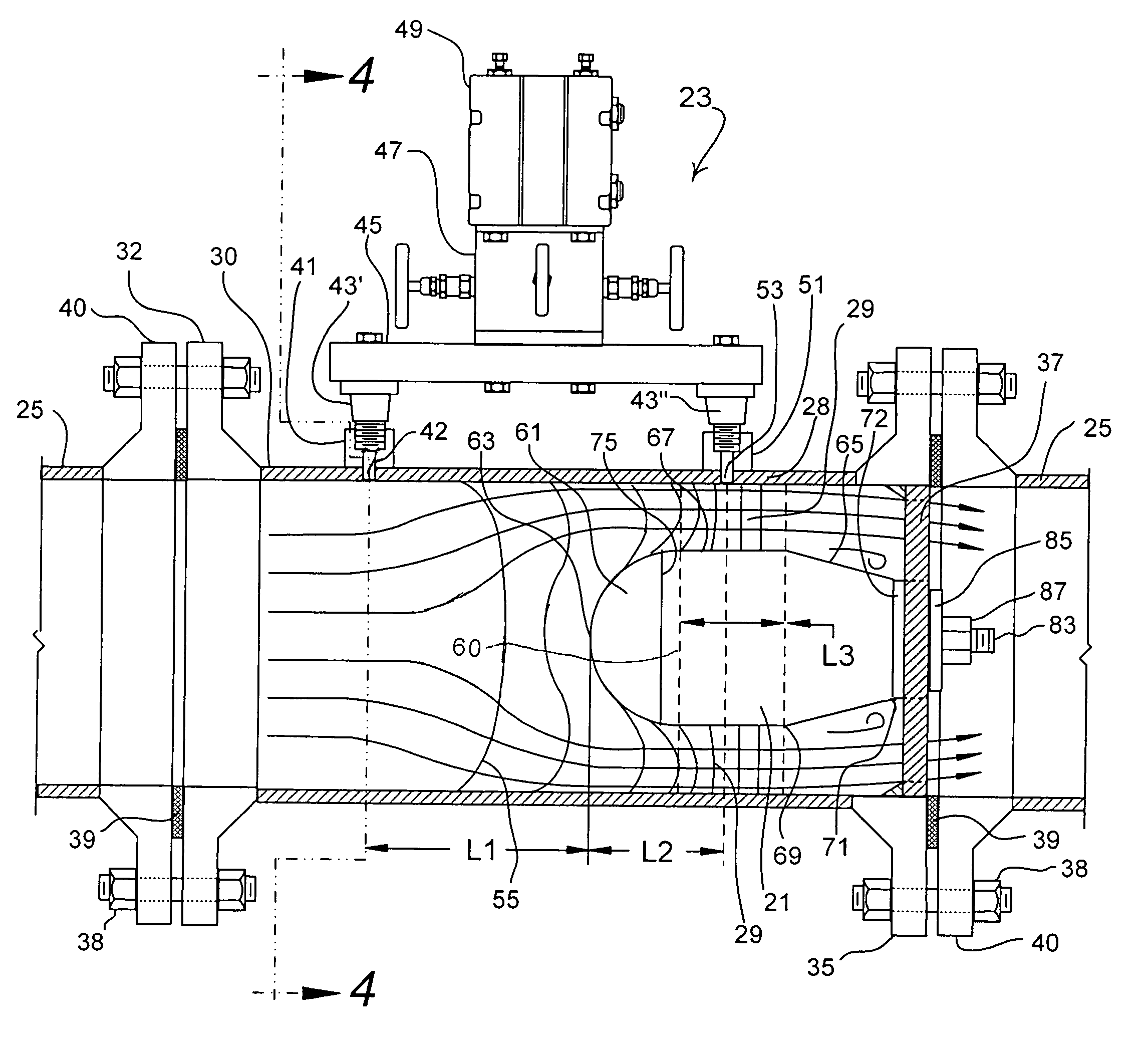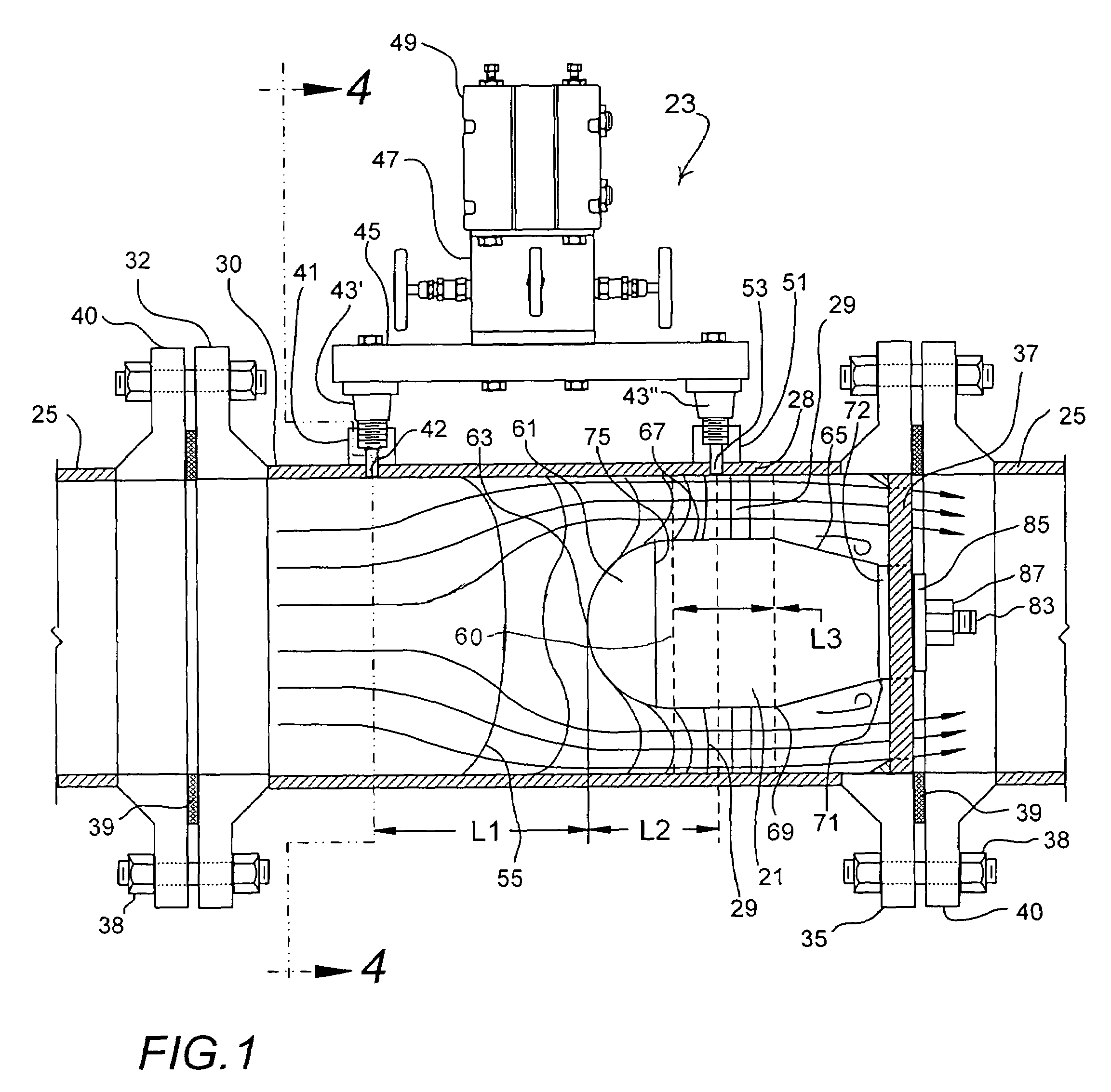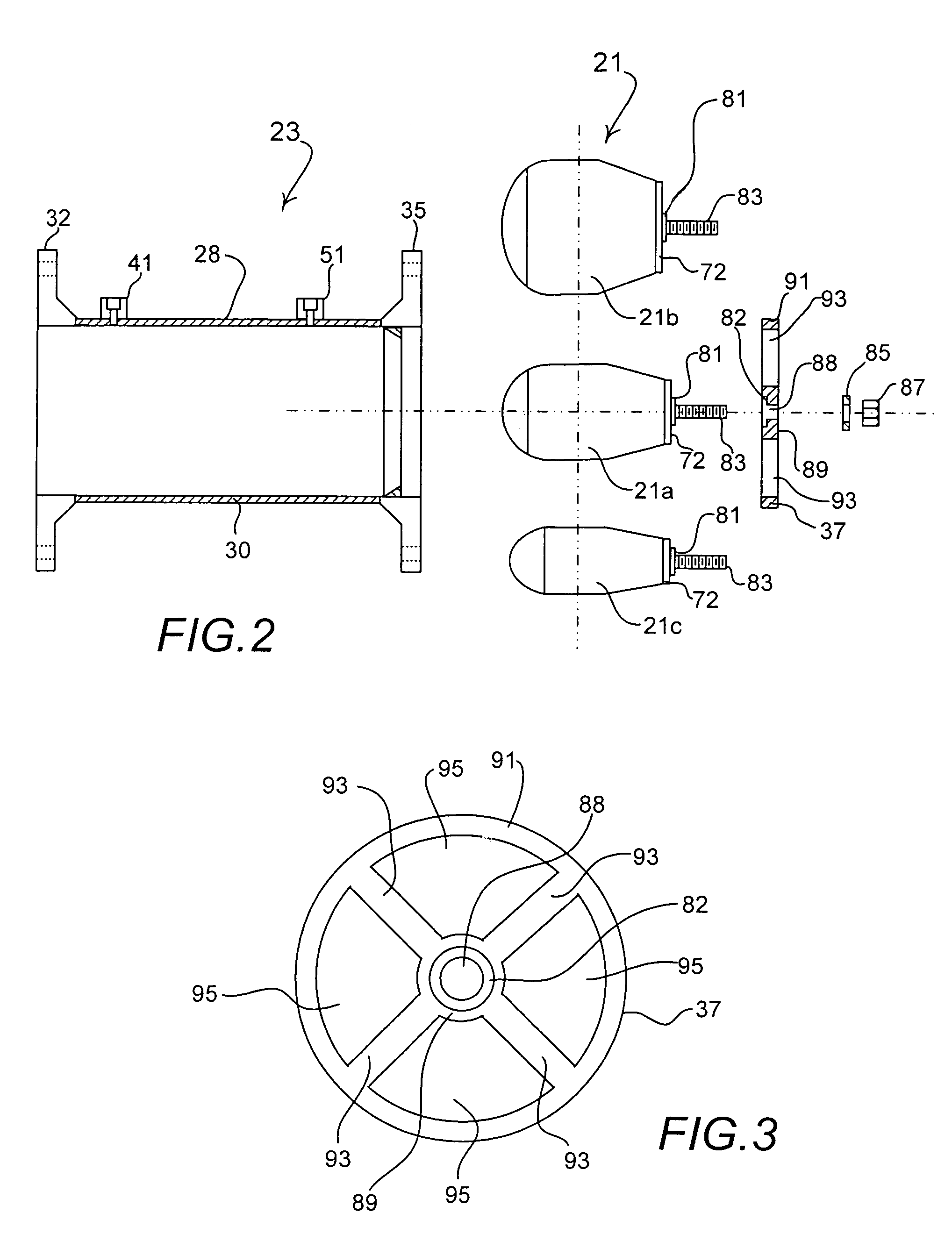Devices, installations and methods for improved fluid flow measurement in a conduit
a technology of fluid flow measurement and conduit, applied in the direction of measurement devices, volume/mass flow measurement, instruments, etc., can solve the problems of structural failure due to flow induced vibration, inability to document, and inability to meet the requirements of many users, etc., to improve fluid flow measurement, easy installation and use, and less design-induced vibration
- Summary
- Abstract
- Description
- Claims
- Application Information
AI Technical Summary
Benefits of technology
Problems solved by technology
Method used
Image
Examples
Embodiment Construction
[0039]FIG. 1 shows the now preferred embodiment of device 21 of this invention in installation 23 of this invention maintained in conduit 25. Installation 23 includes pipe or conduit section 28 affixed between sections of conduit 25. Device 21 is concentrically located in the otherwise unobstructed flow path defined by pipe section 28 and obstructs fluid flow thereat to establish annular flow therearound. As may be appreciated, the diameter of pipe section 28 is constant (i.e., corresponding to conduit 25 and without significant pipe wall constriction or expansion along its length), the outside diameter of annular flow path 29 established by device 28 being substantially equivalent to the diameter of pipe section 28, while the inside diameter of annular flow path 29 is variable with contours of device 21.
[0040]Pipe section 28 includes a length of pipe 30 held between (welded for example) means of attachment in conduit 25 (as shown in FIG. 1, flanges 32 and 35 welded to pipe 30, thou...
PUM
 Login to View More
Login to View More Abstract
Description
Claims
Application Information
 Login to View More
Login to View More - R&D
- Intellectual Property
- Life Sciences
- Materials
- Tech Scout
- Unparalleled Data Quality
- Higher Quality Content
- 60% Fewer Hallucinations
Browse by: Latest US Patents, China's latest patents, Technical Efficacy Thesaurus, Application Domain, Technology Topic, Popular Technical Reports.
© 2025 PatSnap. All rights reserved.Legal|Privacy policy|Modern Slavery Act Transparency Statement|Sitemap|About US| Contact US: help@patsnap.com



